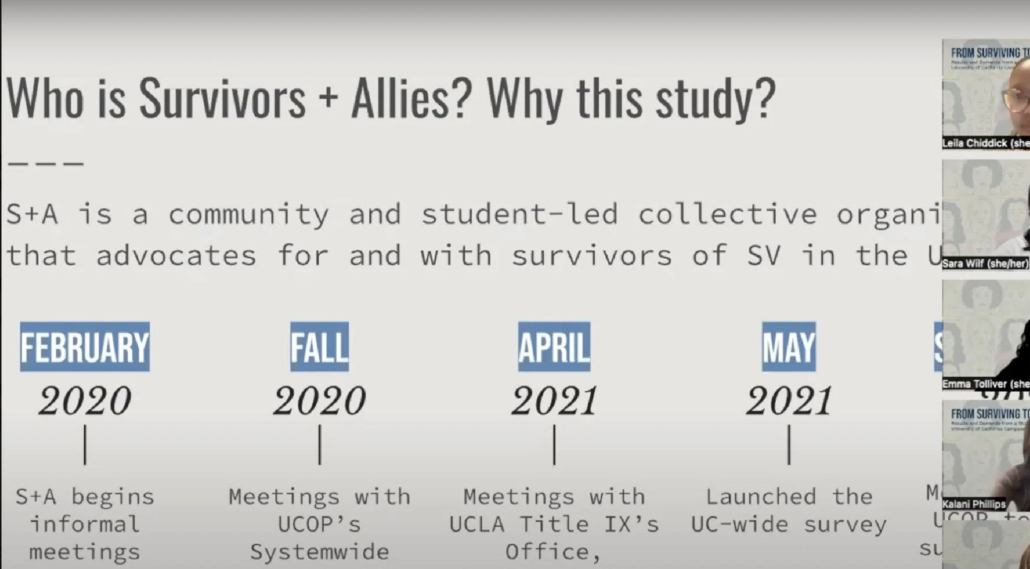Daily Californian: Survivors + Allies Proposes Reforms to SVSH Resources Across UC
Student, faculty group proposes reforms to SVSH resources across UC
By Veronica Roseborough | Read original post on The Daily Californian
Confronted with what they saw as a system ill-suited to meet the needs of survivors, a group of 15 students and faculty embarked on a task that it claims the UC Office of the President elected not to: gather feedback and recommendations to improve the UCs’ response to sexual violence.
Beginning in 2020, the group members set out to develop a survey based on their collective experiences as survivors. They sought to determine whether students were aware of and utilizing the campus resources available to them, as well as whether said resources promoted healing.
Collecting responses from 1,384 students from all 10 UC campuses, they concluded that resources for survivors are “inadequate, underfunded, and focused on punishing perpetrators” rather than centering the needs of those harmed.
“Students go to a university to learn and find themselves; no one expects to be harassed or assaulted. However, when that does happen we expect the university to have the resources we need easily accessible and to be student focused,” said UCLA alumna Laura Knittig in the report. “Through my own experience I knew that wasn’t the case.”
They found that awareness of resources accessible to survivors is low. Among the on campus entities that students can approach for redress, the study reported that 38% had never heard of the Center for Advocacy, Resources, and Education, or CARE; 28% had never heard of the university counseling and psychological services, or CAPS; and 23% were not aware of what the Title IX office does.
There was also confusion surrounding whether or not these resources are at the disposal of international and undocumented students.
Of the 565 survivors surveyed, the report states that marginalized student survivors need additional support in locating and accessing off-campus resources. They also found negative experiences with Title IX and UCPD to be pervasive, with 66% of respondents unable to find the information they needed on the website.
Though 81% of survivors felt emotionally supported and respected by CARE staff and 82% said they received adequate information, the study authors noted that the program is underfunded, with about one advocate for every 5,663 students at UC Berkeley, according to fall 2022 data.
With all this in mind, the study’s authors laid out next steps for “surviving at the UCs.” Each fall, they said, the UCs should fund comprehensive communications campaigns to inform students of the resources at their disposal, explain confidentiality and how it applies to each resource and clarify that all students are covered by Title IX, regardless of their citizenship status.
They also recommended that all CARE offices across the UCs receive standardized funding to, at a minimum, provide one advocate for every 1,500 students.


